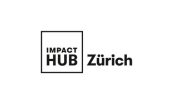
April 2017
The Future of Work: It’s a (complex) Thing.
Have you heard murmurings about ‘knowledge workers’? Do you find yourself wondering why the guy at the next desk calls his cupcake-making activities a ‘side-hustle’? Or maybe you receive Memos From Above that are starting to use terms like ‘agile’ and ‘co-creating’. Welcome to the future of work.
The Future of Work (#FoW) is a way of chunking together the various evolutions and challenges workers and organisations in the 21st century are currently facing—and indeed anticipating for the years to come.
According to a quick scan of online perspectives on FoW, many of these challenges appear to be at the nexus of technologies, economics, organizational change and individuals’ happiness. The forces currently impacting people’s daily lives include the dynamics around organizational restructuring, balancing working lives with wellness and relationships, finding new ways of working in the digital economy, and—yes, still, in 2017, in many countries—equal opportunity in the workplace.
While clumping all these issues together under one hashtag may seem a bit like overkill to the average hashtag-diver, when we take a closer look we can see they’re not so easily delineated, and in some cases are closely interlinked.
And, just by the way, the zones of friction and opportunities for change that we face in reality are the same three that face all protagonists in the stories that stand the test of time: from Odysseus to Luke Skywalker or Elizabeth Bennett to Buffy the Vampire Slayer. They range from the environment (including forces natural and unnatural in the storyworld) to interpersonal relationships and, at the crux of it, the challenges they face within themselves.

And—for what it’s worth—every one of these characters has evolved within a specific storyworld, with a wide range of forces that are peculiar to their life in that world … so is it any wonder that the challenges they face are somehow interlinked?
So why is the Future of Work of interest to those of us within the Impact Hub community?
Power in Awareness
Let’s assume we’re all working towards ‘success’, however we choose to define it. And let’s assume we have our hopes and our vision, and our action plan and our goals and so forth.
Now let’s assume the road we travel has its challenges. As a military combat analyst (or Archilochus, a Greek lyric poet, take your pick) might put it: When we’re under pressure, we don't rise to the level of our expectations, we fall to the level of our training.
Hold onto that thought for a moment …
Let's learn from Our Mistakes
Within the startup and entrepreneurial environments, people appear to bump up against many the FoW themes frequently. (We’ll be hearing some of these experiences over the coming weeks.) This may be partly because entrepreneurs are often building enterprises, organisations and teams from the ground up, and if the option is there to do things differently—to collaborate with a corporate intrapreneur, to restructure salaries according to competencies or proficiencies, to re-think the organizational structure altogether—then why the heck not try? The worst that can happen is that we learn from our mistakes, right? It’s called #failingforward, right?
Well, it’s likely most of us know by now that making mistakes, undergoing change, and being under pressure in and of themselves aren’t necessarily a bad thing: in fact, some might argue it’s beneficial to be able to enjoy a spot of adrenaline and risk if you want to be an entrepreneur.
But, whether we call ourselves an entrepreneur or not, it’s also fairly well recognized that when we humans are facing a perceived threat, our amygdala (the ‘lizard brain’) tends to kick in, readying us to run for the hills, fight the predator, or play dead (‘fight-flight-freeze’). It’s a useful state to be in… when it’s useful. But when we can’t override it—perhaps because we’re unable to recognize or make sense of said perceived threat—it’s much harder to listen to others, focus on the tasks that matter, and maintain some kind of bigger-picture perspective.
Training for the Adventure
As any protagonist or storyteller will tell you, lasting change usually comes at a cost (the ‘prize’ comes at a ‘price’), which can be measured in various ways including with money, time, relationships, energy or resources. Managing the cost of our efforts when things aren’t going the way we anticipated can result in a stress response, no matter who you are.
Which is precisely why it’s handy to get informed—and learn to recognize—that the so-called ‘Future of Work’ challenges we are facing are not ours alone. We may simply be experiencing Life as a Human in the 21st century. And becoming aware of this is part of training ourselves up for the adventure.
Indeed, once we are aware of the changes going on around us—and the range of challenges those changes present—we are much better equipped to ‘make sense of the danger’, take a Jedi Master step back and say, “Oh, I get it. This is just part of The Way Things Go.” And tweak our processes or mindset accordingly.
The Power of Conversation
One way to ready ourselves for adventure can be to start a discussion around the challenges we’re encountering, and take time to listen to others’ experiences. Because it’s also clear by now that humans aren’t designed to thrive in isolation. And besides, the hive mind has a very cool way of coming up with solutions we simply can’t come up with on our own!
Over the coming months, we’ll be taking a look at some of the Future of Work areas that affect us in some way, whether we know—or believe!—it or not. Our hope is it will spark some discussion within and between our respective communities and networks. #FoWIHZ
Next time, we’ll travel to the outer perimeter of the known universe and start our investigation into the world of governance and hierarchies. Stay tuned!
And, if you haven’t already, don’t forget to sign up for the Impact Hub Zürich Newsletter to get the newest blog posts directly into your mailbox and to stay in touch with what’s going on in our community.
Newsletter abonnieren
Unser Newsletter erscheint alle 3-4 Wochen und stellt sicher, dass ihr nichts aus der Community verpasst.




